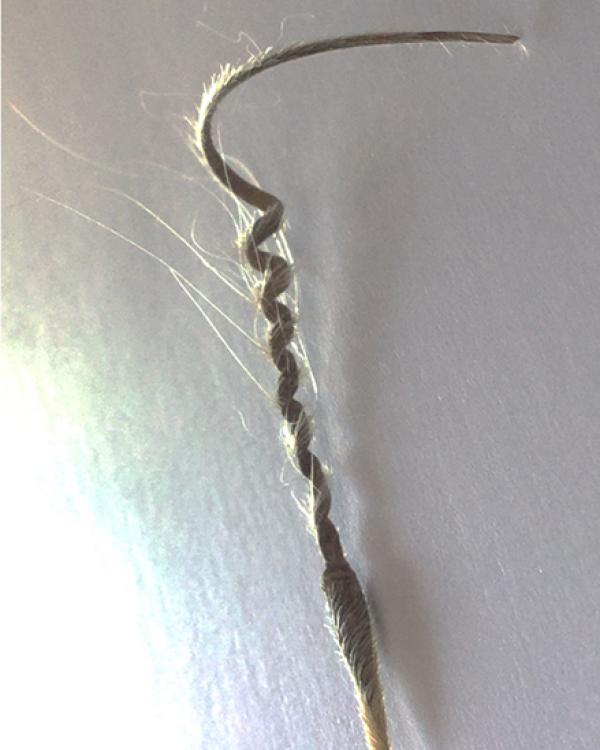
I have a golden retriever aptly named Teddy who needs brushing multiple times a day so that her fur doesn’t become a matted mess of leaves and seeds along with other, interestingly smelly things that she discovers along our path. Recently after a walk, I managed to pull from her fur a curious object about 2 inches long, which I think is a type of seed, featured here. I’m not exactly sure what kind of plant produces these prickly corkscrews, but I am amazed by Nature’s engineering abilities. Animals like Teddy are unknowingly dutiful carriers for many kinds of seeds, like burs (yes, they are seeds). In this photo, you can see thin strands of Teddy’s fur practically glued to the spiral structure. Seeds, like other life forms, have evolved over many millions of years in order to adapt to various challenges and continue growing.
We all continue to evolve and adapt in order to live and thrive in this world. The past few months have challenged us to rethink how we learn, work and interact with one another. We are now seeing cool styles of face masks hit our markets, and hand waves have become the new handshake. Books on anti-racism and the sociocultural perils of whiteness are sold out across our country. We are learning, adapting, and evolving in a burgeoning social world much like this swirling seed, but perhaps -- one can only hope! -- at a much, much faster pace.
Diana J. Arya is Assistant Professor in Education and Faculty Director of the McEnroe Reading and Language Arts Clinic. She studies the development of community-based, interdisciplinary literacy practices of learning and innovation from preadolescence through adulthood.